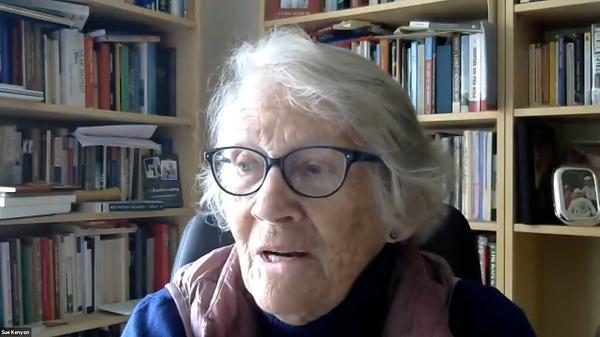Would you like to see your presentation here, made available to a global audience of researchers?
Add your own presentation or have us affordably record your next conference.
keywords:
race and racism
activism
practice
Deep-seated colonial and racist roots undergird the field of anthropology as a whole and biological anthropology in particular. Once replete with notions of eugenics, typologies, assimilation, and racial hierarchies, the field has evolved, and reflexive trends have challenged researchers and practitioners to confront these oppressive ideologies. When turning the ethnographic gaze upon ourselves, we ask, how do we as professionals continue to reproduce inequity, inequality, and violence within our own discipline--and how can we avoid this? This session focuses on anthropology’s professional responsibility to our own field and our colleagues, as well as how diversity and inclusion can improve our professional practice. This roundtable is inspired by several timely events. Following a unilateral decision made by the American Academy of Forensic Sciences (AAFS) in 2020 to disband the Anthropology Section’s Diversity and Inclusion Committee, forensic anthropologists erupted in animated and contentious dialogue regarding the merit, need, objectives, and vision of diversity and inclusion for biological anthropologists. Concurrently, a letter to the editor of the Journal of Forensic Sciences (Bethard & DiGangi 2020) and a paper in the American Journal of Physical Anthropology (DiGangi & Bethard 2021) called for the dismantling of forensic notions of “ancestry,” as it perpetuates the disproven biological race concept that persists in American culture, among enacting other harms. Additionally, numerous events throughout the year have highlighted persistent issues around the care of human remains, along with the human rights laws (i.e., NAGPRA) and ethics which supposedly protect them. However, it is clear that such abuses and indifference to--or chastisement of--the responses they provoke continue to signal to under-represented scholars that they are unwelcome. Given that biological anthropologists are first anthropologists, and issues surrounding diversity and antiracism are also being confronted by sociocultural anthropologists, primatologists linguists, and archaeologists, this conversation creates a space for anthropologists across subdisciplines to bridge professional organizations, efforts, and specializations to effect change across the field as a whole. In particular, we will interrogate two pressing questions: 1) what is Anthropology’s professional responsibility to inclusivity, antiracism,and anti-oppression within the field?; and 2) how can relationships between the subfields be leveraged to produce actionable, substantive change across the discipline?

